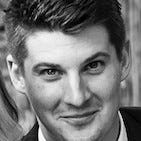Death of a (Medical) Salesman
“Oh, you’ve got one of those cushy jobs.”
I’m not sure whether he meant it as a compliment or a pejorative. He was unpacking a set of paint-laden tools and jumbo kneepads when he asked what I did for a living before getting to work on his craft — finish carpentry. Nevertheless, this sentiment may have been true(r) 20 years ago, but the business of medical sales is, undeniably, not what it once was. Our approach to sales on the other hand? Full of dust.
In a world historically defined by the palm tree, cabana-themed conference; the free golf clubs for the free membership to the most prestigious course in town; the deals over daiquiris; the court side seats and the big screen TVs. The high-end, exclusive restaurants. The 25-year vintage; never the 18. The big nights and even bigger cheques. Ultimately, at the end of these extraordinarily expensive business-related and education-based endeavours (…), was a handshake. Better yet, a signature. The medical device and pharmaceutical industries had perfected the “art of the sale”.
(This is, admittedly, a broad brush and whether this behaviour was the exception or the rule is perhaps a debate for another time.)
As many stories as we’ve heard about the “good old days,” the sweeping and uncompromising compliance regulations that now underpin all of our actions, intentions and language as medical sales consultants are there for good reason. This is not highly classified stuff. We, as an industry, needed desperate intervention to level the playing field and ensure choices were being made in a just and transparent fashion.
(To be perfectly clear, our industry is now, and has been for quite some time, a far-cry from those “golden days”.)
Let’s backup to the once slippery moral slope of healthcare sales. Who was it standing at the centre of all this foolishness? The salesperson, of course. Take a minute to imagine this individual. Just who were these elite social-tacticians anyway? Were they defined by empathy or egocentrism? Humility or gregariousness? Self-consciousness or conceit? Inquisitiveness or presumption? Were they compassionate or cut-throat? Did they give more than they took? Did they listen more often than they spoke? Ask more questions than they made statements? I don’t know for sure, but I suspect there may have been more of the latter than the former at play. And why the hell not? This is the kind of person capable of navigating these exceptionally unique circumstances.
But those circumstances have all but vanished from our profession, haven’t they? These “tools” are no longer at our disposal. The industry, in an instant, was transformed from one dominated by deep pockets to something much different with the introduction of many anti-kickback statutes, the Foreign Corrupt Practices Act, the Sunshine Act and on and on the list goes. And if we can’t buy the business anymore, where does that leave us?
More than ever before, it leaves us with no choice but to establish authentic, trusting and consultative relationships. I know. The sales zeitgeist is bloated with similar such words: trust, consultative, empathy, patience, transparency, creativity. These are tossed around so often they’ve all but lost their meaning, but they’re really, really important. On their own, the ideas are simple enough, but truly understanding how they manifest into real-world behaviours is anything but straightforward. To colour in our everyday actions with shades of humanity, authenticity and vulnerability is no small feat.
Here’s the meat, though. While the type of person that was once ideal for this type of work has been completely redefined, how have organizations responded? Have the job descriptions been revamped to reflect a new set of skills and personality traits? Have the compensation plans on which the ever-important incentivization of salespeople depends been questioned? Have the highly-specialized recruiters adjusted their search criteria to reflect a much different consummate sales representative? Have companies’ hierarchies been engineered to optimize the needs of the enigmatic Millennial, the casual Generation X and the purpose-driven Generation Z (now, collectively, representing over 70% of the global workforce)? And have we considered the younger generations’ obvious changes in lifestyle and workplace preferences both in the context of our salespeople and their customers?
Simon Sinek wrote, “in infinite games, like business or politics or life itself, the players come and go, the rules are changeable, and there is no defined endpoint. There are no winners or losers in an infinite game; there is only ahead and behind.” He continues, “when we play in a finite game, we play the game to win. Even if we hope to simply play well and enjoy the game, we do not play to lose. The motivation to play in an infinite game is completely different — the goal is not to win, but to keep playing. It is to advance something bigger than ourselves or our organizations.”
If we subscribe to Sinek’s perspective on business, among other things, what is there to say about the current sales models? Buckets. Budgets. Targets. Awards. Focus products. Accelerators. Do chasing these goals truly encourage the principles that have become so critical to long-term success? Principles of customer-centricity, trust, empathy, permanence, partnership and consultation. Does it encourage us to always do the right thing; to think beyond a quick (or long) win (only to have this brief moment of pleasure stripped away by our own hedonic treadmill)? Or are they in direct conflict with these principles? Is it, instead, every (wo)man for themselves in keeping their behaviours kosher despite the dissonance?
When is the last time we’ve seen a real paradigm shift in the field of sales? Who will pioneer us into the modern day Amazon, Netflix or Basecamp of sales organizations? Who will have the foresight to swap out the tired, blurred, but most importantly, finite lens through which we see selling with one reflecting, instead, the infinite nature of our game?
